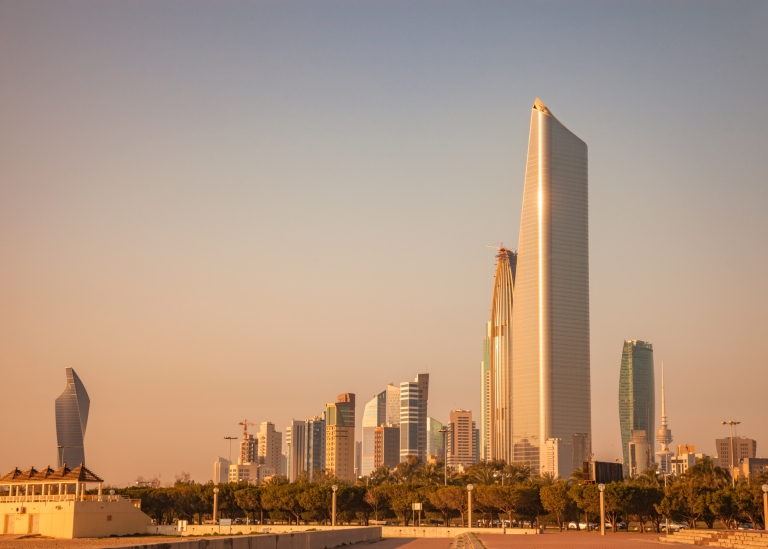Build a global team in minutes
Get expert helpDubai’s become a magnet for international talent—and for good reason. With its business-friendly environment and the fact that 85% of the population are expats, it’s built for people from around the world.
But before you can start working in the United Arab Emirates (UAE), you need the right work visa. And while the UAE makes it easier than many countries, there are still specific steps you’ll need to follow: picking the correct visa type, getting your entry permit, applying for an Emirates ID, and completing a medical checkup.
Sounds straightforward? It can be—if you know what you’re doing.
This guide breaks down the different UAE work visas available, shows you exactly what documents you’ll need, and walks you through each step of the application process. No surprises, no missed requirements.
We’ll also show you how working with an immigration expert takes the guesswork out of the entire process—especially valuable if you’re a company looking to hire talent in the UAE or relocate your team there. Because when you’re planning a career move or expanding your business internationally, the last thing you need is visa complications.
Types of UAE work visas
Before entering the UAE for work, foreign nationals must obtain a UAE work visa. Foreigners can choose from three types of UAE work visas: standard work visa, Green visa, and Golden visa. The right visa depends on the circumstances of each applicant.
Standard work visa
A standard work visa in Dubai and the UAE is an employer-sponsored work visa that permits an expat to live and work as an employee in the UAE for two to three years. After this time, the employer must renew or cancel the visa.
A standard work visa is one of the most common options for working or hiring talent in the UAE. It requires an employment contract and approval from the Ministry of Human Resources and Emiratization (MoHRE).
Before arriving in the UAE on a standard work visa, a foreign national must accept a job offer in writing and obtain an entry permit. The entry permit allows them to enter the UAE and begin the process of getting their work visa and residence visa.
Green visa
In October 2022, the UAE introduced the Green visa to attract and support foreign freelancers and self-employed individuals in Dubai and the UAE. The Green visa grants holders residency for five years and, unlike the standard UAE work visa, does not require employer sponsorship.
The Green visa has additional benefits, such as the ability to sponsor immediate relatives to relocate to the UAE, a six-month grace period upon visa expiry or cancellation, and a simplified application process.
The documents required to apply for a Green visa in Dubai or other parts of the UAE vary depending on the applicant’s work category. However, standard required documents include a valid employment contract or self-employment permit from the MoHRE, proof of education, and proof of sufficient income during the applicant’s stay in the UAE.
Golden visa
The UAE’s Golden visa is an extended residence permit that allows professionals with exceptional qualifications to live, work, and study in the UAE for 10 years without a local sponsor. People who qualify for the Golden visa are usually doctors, scientists, athletes, inventors, artists, healthcare staff, or others with select qualifications.
Golden visa holders get benefits like exclusive health insurance packages and can sponsor unlimited immediate family members and support staff. They can also spend unlimited time outside Dubai or the UAE without affecting their visa status.
The list of supporting documents for a Golden visa varies depending on the applicant’s background. An eligibility quiz on the Federal Authority for Identity, Citizenship, Customs, and Port Security (ICP) website clarifies whether or not a person qualifies for the Golden visa.
Who is eligible to obtain a UAE work visa?
Anyone over 18 can legally work as an expat in Dubai or the UAE, provided the employer and employee meet the MoHRE’s standards. Below is a general overview of the MoHRE’s conditions for working in the UAE:
- The employer has a valid operating license
- The employer has no violations
- The employee’s work corresponds to the nature of the company’s operations
- The employee has at least a high school diploma
There is no maximum age limit for applicants, but employers must pay an additional AED5,000 (US$1,360) fee every two years for employing workers over 65 years old.
Requirements for obtaining a UAE employment visa
UAE employment visa requirements vary, depending on the visa category. Below is a general list of the required supporting documents for a UAE work visa application:
- Original passport and copy
- Passport-sized photos in line with UAE requirements
- Emirates ID card
- Entry permit from the Ministry of Labor (MoL)
- Medical certificate issued by a government-approved health center in the UAE
- Copies of the employee’s academic qualifications with authorization from the Ministry of Foreign Affairs and the UAE Embassy in the employee’s home country
- Documents from the employer, such as their commercial license and company card
The employer is responsible for the work visa application process and related costs, while the employee is responsible for submitting documents for the residence permit.
How to get a UAE work visa: 10 steps
It’s helpful to think of the UAE work visa application process in three stages: getting an employment entry visa, applying for an Emirates ID, and obtaining a residence visa and work visa. We outline the stages and their steps below.
Stage 1: Obtain an employment entry visa in the UAE
1. Apply for an entry visa quota approval
If the applicant resides and works in one of the UAE’s 46 free zones, the employer must apply for a UAE free zone visa, which requires visa quota approval from the Ministry of Labor.
Free zone employers have a quota restriction on work visas, which varies across free zones. For example, the quota in Dubai is one visa per nine square meters of office space. If an employer reaches their quota, they can move to a larger office or apply for a quota upgrade.
2. Submit a signed employment contract
Upon receiving quota approval, the employer must submit a signed work contract to the MoL for approval. The contract must be in English, Arabic, and the employee’s native language if it differs from either language.
3. Submit a work visa application and apply for an entry visa
The employer must submit their work visa application for approval. At this stage, the MoL confirms that the sponsor is a registered UAE corporate entity and determines if any unemployed UAE citizens can fill the vacant position instead of the foreign applicant. The MoL must approve the work visa application before issuing an entry visa.
4. Receive an employment entry visa
Upon approval of the work visa application, the MoL issues an employment entry visa, also called a pink visa. The entry visa is valid for two months for standard and Green visa holders and six months with multiple entries for Golden visa holders. It allows the employee to legally enter the UAE to formalize their work visa and apply for a residence visa.
The employee receives the entry visa once they arrive in the UAE. If they can’t travel to the UAE within 60 days, they can apply for a one-time extension. If the employee is already in Dubai or the UAE on a different visa, they should apply for a visa “change of status” or do a “border run” to get the entry visa.
Upon entry, the employee should start collecting supporting documents for their residence visa application, such as an Emirates ID and a health certificate. At the same time, the employer submits additional supporting documents for the work visa.
Stage 2: Apply for an Emirates ID
5. Apply for an Emirates ID
Foreign nationals entering or relocating to the UAE for work must get an Emirates ID, which is necessary for the required medical screening. The ID directly links to the expat’s residence visa and serves as an everyday identification document in the UAE in place of a passport.
To apply for an Emirates ID, the employee must visit an Emirates Identity Authority (EIDA) center with their passport and entry visa and provide biometrics, such as their fingerprints and a photograph.
Stage 3: Obtain a work visa and residence visa in the UAE
6. Get a medical checkup
All applicants must receive medical screening at a government-approved clinic in the UAE. The results of the checkup are required for the residence visa application.
7. Submit a labor contract
As a part of the UAE work visa formalization, employers must upload their employee’s labor contract to the MoL website within 14 days of receiving the employee’s medical screening results.
8. Get health insurance
Health insurance is mandatory for all expat employees in the UAE. In some Emirates, such as Abu Dhabi and Dubai, employers must provide health insurance for employees and their families.
If a foreign employee resides in Sharjah or one of the northern Emirates, they must purchase their own health insurance plan. The MoL does not issue or renew work visas for employees without a valid health insurance card.
9. Receive a work visa and begin payroll
After completing the above steps, it takes about five days for the MoL to grant an official work visa. Upon receiving the work visa, employees can legally begin working in the UAE, and employers can start administering payroll through the official UAE system.
10. Receive a residence visa
Once all of the above items are in place, the employee must submit the required documents with their application for a residence visa. If the applicant hasn’t received their official Emirates ID, an application receipt will suffice. The residence visa is valid for two years and is renewable.
All expats need a residence visa to live in the UAE, and the MoL lists the employee’s work visa as part of the residence visa. Expats also need a residence visa to complete formalities, such as opening bank accounts, registering a car, and opening a P.O. box.
FAQs
How long does it take to get a UAE work visa approved?
Most UAE work visas are processed in a few days to a few weeks, but the full timeline from offer to residence visa and Emirates ID can easily run 3-8 weeks, depending on how organized you and your employee are.
Can I apply for a UAE work visa without a job offer?
You generally cannot get a standard UAE work visa without a job offer, because a local employer (or licensed partner) must sponsor and apply for it on the worker’s behalf.
The UAE offers a separate job seeker (job exploration) visa that lets talent enter the country for 2-4 months to look for work without a local sponsor. But you must switch to an employment visa once you secure a role before starting work.
What is the difference between a UAE work visa and a residence visa?
A UAE work visa lets someone work for a specific employer. A UAE residence visa lets them legally live in the country.
Can UAE work visa holders bring their families?
Yes, most UAE work visa holders can sponsor close family members, as long as they meet the salary and residency rules.
What happens if my UAE work visa expires or is canceled?
A canceled or expired UAE work visa means you lose the right to live and work in the UAE. You do have a short grace period to either regularize your status or leave the country.
Can I switch employers while holding a UAE work visa?
Yes, you can usually switch employers in the UAE, but it is not as simple as quitting one job and starting the next.
For mainland or onshore roles, the MoHRE handles the process. But each free zone has its own rules, and moving between the mainland and a free zone (or free zone to free zone) can mean complete cancellation of your work visa and a fresh work visa application.
What are the most common reasons UAE work visas get rejected?
Most UAE work visa rejections come down to paperwork problems (like incorrectly filling out an application, passport issues, past immigration issues, or security concerns).
What is the cost of obtaining a UAE work visa?
There is no single flat price for a UAE work visa. But employers typically pay several hundred to a few thousand AED per employee, depending on the emirate, free zone vs. mainland, skill level, and visa validity.
What employers should know before you apply
As a foreign employer, there’s a catch with UAE work visas: every single applicant needs a sponsor—and that sponsor has to be a legally established company in the UAE. No local entity? No visa.
This creates a real headache if you’re a foreign company wanting to hire someone in the UAE. You can’t just post a job and bring someone on board. Without a UAE entity, you’re stuck.
But there’s a way around this: partner with an Employer of Record (EOR). Think of an EOR as your legal stand-in. They become the official employer on paper, handling all the UAE requirements while your new hire works for you. You get the talent you want without having to set up shop in the UAE first.
It’s the difference between spending months (and significant money) establishing a UAE entity versus hiring someone next week.
An EOR like Pebl handles everything from onboarding and payroll to visa requirements and compliance so companies can reap the benefits of global mobility by testing markets in the UAE and hiring UAE expats or locals without risking noncompliance with UAE employment and immigration laws. Let’s chat about how Pebl can streamline the UAE work visa process while you focus on growing your business.
Let Pebl handle UAE visas—so you can focus on hiring great people
The UAE makes work visas easier than most countries, but “easier” doesn’t mean simple. You’re still dealing with document requirements, translation needs, and immigration rules that change without warning. And when you’re trying to hire someone or relocate your team, visa delays can derail everything.
Here’s where Pebl steps in. Our Global Immigration services take the visa headaches off your plate. As part of our Employer of Record services, we handle all the paperwork, translations, and compliance details while you focus on what matters—finding and hiring the right people.
What does this mean for you? No more chasing down documents or wondering if you’re following the latest immigration rules. No more explaining to your new hire why their visa is taking longer than expected. Just smooth, compliant hiring in the UAE and 185+ other countries.
Ready to hire in the UAE without the visa stress? Let’s talk about how Pebl makes global immigration manageable.
This information does not, and is not intended to, constitute legal or tax advice and is for general informational purposes only. The intent of this document is solely to provide general and preliminary information for private use. Do not rely on it as an alternative to legal, financial, taxation, or accountancy advice from an appropriately qualified professional. The content in this guide is provided “as is,” and no representations are made that the content is error-free.
© 2026 Pebl, LLC. All rights reserved.
Topic:
Immigration + Relocation


